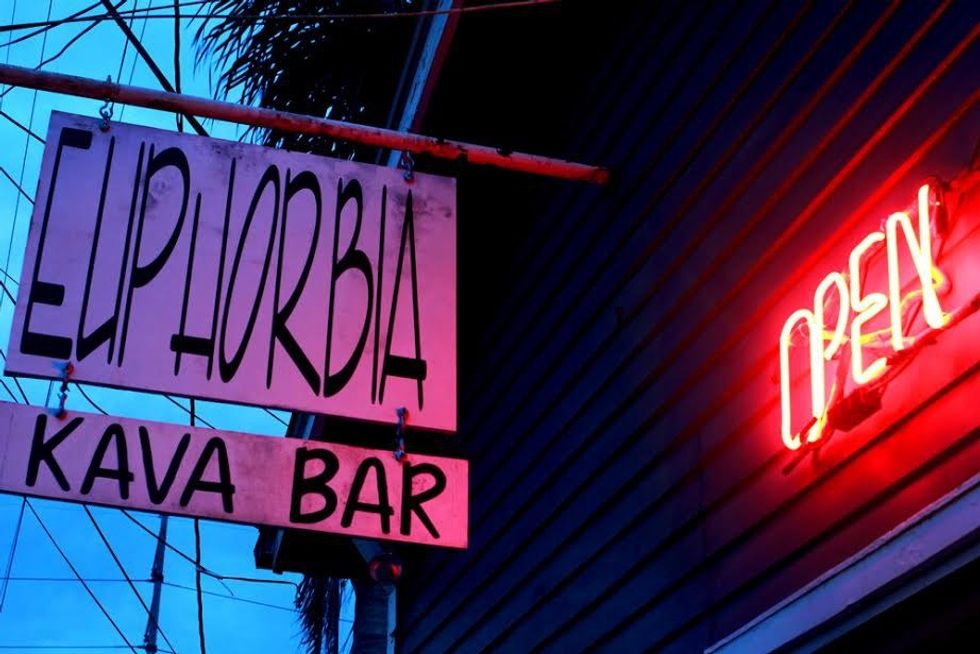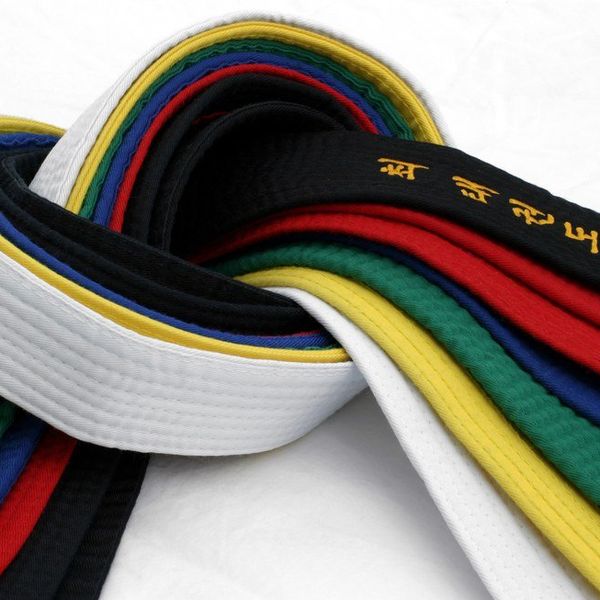New Orleans is a city known for many things, chief among them its drinking culture. But if you find yourself in New Orleans and you don't drink, how can you have a good time? Marijuana regulations have recently lightened up in the Crescent City, it's true, but smoking is still illegal and punishable with jail time by state law though the latter is at the discretion of the officer you run into. It's ironic that the same officer might be in charge of guiding your next Second Line through the Quarter while you dance and shout and swig poison. It's unfair to hold the individual officer completely responsible in this case, though, as the law is the law and they don't dictate it; except they do.
Kava, which is legal and comparable to both marijuana and alcohol in its effects, is enjoyed by citizens and officers alike. A friend of mine ran into his arresting officer from over 10 years ago at New Orleans' Euphorbia Kava Bar last week; the two caught up like old friends over Chai Piper kava drinks. But what is kava, aside of course from the cure to all of humanity's woes?
Kava is the ground-up root of piper methysticum, a pepper plant found in Oceanic islands like Vanuatu or the Fiji archipelagos. When the powder is mixed with water, it can be consumed as a natural anxiolytic, which means it suppresses anxiety, similar to benzodiazepine prescription drugs, but without the highly addictive quality. Kava has a history of ritualistic use on the islands, where it was traditionally prepared by having young boys chew up the plant root and spit it out (sometimes straining it through a sock) in a large bowl from which the community would then ladle their drinks. There are still communities today that are built largely around kava; many of the beachfront homes in Vanuatu double as kava bars in the evening, where the neighborhood gathers to drink the murky substance like their ancestors did for many generations before.
Today, the chewing and spitting is largely removed from the process. Kava bars like Euphorbia have their product shipped from Vanuatu pre-ground, ready to mix as they please. And how they mix it is critical -- kava tastes, for lack of a better word, like dirt. It puts the acquired taste of alcohol to shame. If you're feeling brave, a Piper is the way to go. Its recipe is simple: kava and water, with a slice of pineapple to chase it with. To mask the taste and add a caffeine kick to your kava, Euphorbia also offers the Chai Piper, a delicious mix of Chai tea, kava powder, half and half and honey. Owner and operator Ashley Daily has also incorporated kava into small chocolates, a personal favorite of mine, and an all-around easier way to consume it.
Within minutes of consuming kava, you'll feel the effects. First, you'll notice your mouth numbing. Next, a wave of calm will wash over you. Any stresses you've had will go by the wayside; you'll find yourself entering a fully lucid state of relaxation, in which you retain clarity of mind while your body decompresses. Conversation becomes easy and languid. To put it simply, you feel great. And what's better is that the morning after, unlike with alcohol, you still feel great. It's like a reverse hangover. If there is one downside to kava, it is the high amount of fiber in it. This is hardly a downside, as fiber is essential, but it can result in an upset stomach for first time users. Think of it more as a cleanse, if you can.
Kava is a legal and--it should be reiterated--natural substance. For that reason, it will not show up on drug tests and is an excellent alternative for those who have job related drug testing that stops them from consuming alcohol or other substances. That is not to say that the use of kava in the United States and elsewhere has been altogether uncontested. In the early 2000s, there were reports of kava causing liver toxicity that led to bans in many places. This is a hotly debated subject in the kava and medical communities, and one that is largely resolved in 2016. Most cases of liver toxicity that have been linked to kava have been shown to involve persons who previously had a proclivity for alcohol and prescription drugs, both of which are indubitably tied to liver failure.
The suspicion toward kava can be largely attributed, in my opinion, to the way that Westerners generally regard alternative forms of medicine. If it doesn't have the stamped approval of the FDA, a ridiculous money driven machine which approves harmful drugs that lead to heroin addiction, then many will ignore it. This is coming from the same mindset that says alcohol is perfectly legal and marijuana, a natural substance with no physically deleterious side effects if consumed correctly, is still a schedule I narcotic, put in the ranks of heroin and described as "the most dangerous drugs of all the drug schedules with potentially severe psychological or physical dependence" by the Drug Enforcement Agency. But we shouldn't harp on the federal government too much. After all, they have financial considerations.
Nonetheless, kava is legal even if there is still a plethora of misinformation out there. The medicinal aspects of kava have been documented since the late '90s. Anecdotal evidence supports its use for the treatment of anxiety, depression and kicking a drug habit. It's best to find out for yourself, though. If you find yourself in New Orleans, go up to the end of Oak St. and visit Ashley at Euphorbia Kava Bar. Once you've had one or two kavas, walk up to the levee and enjoy the sunset on the Mississippi. See the natural beauties this city has to offer. There's more to New Orleans than Hurricane and Hand Grenade drinks on Bourbon Street.
If you need more convincing, watch this short documentary I made for a class last semester to get a feel for Euphorbia, as told by the owner and her patrons.
<p align="center"></P>





















